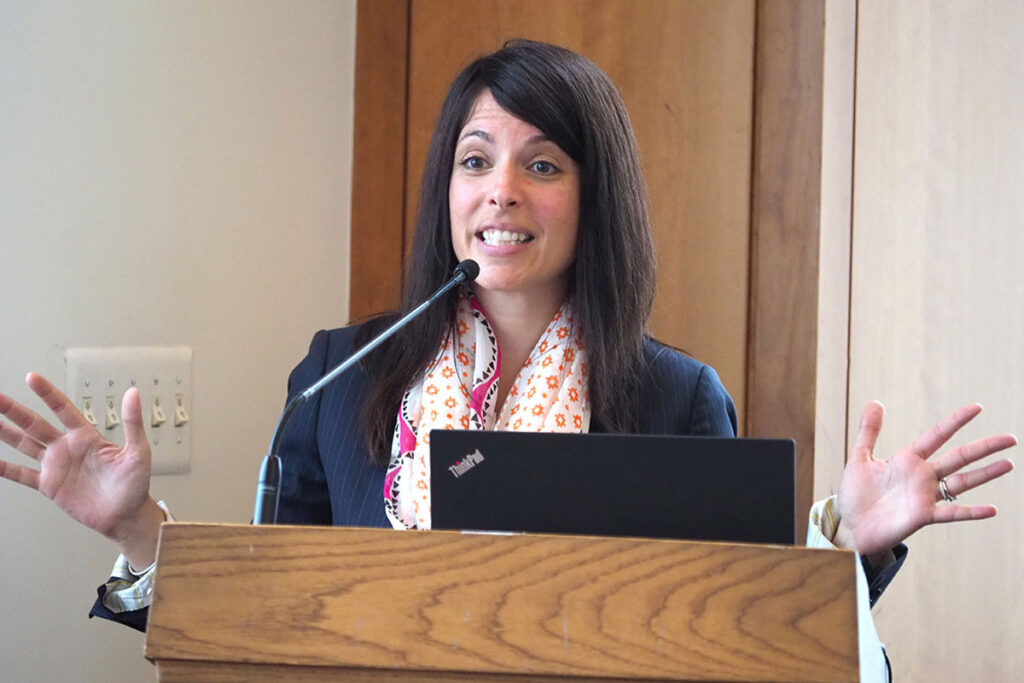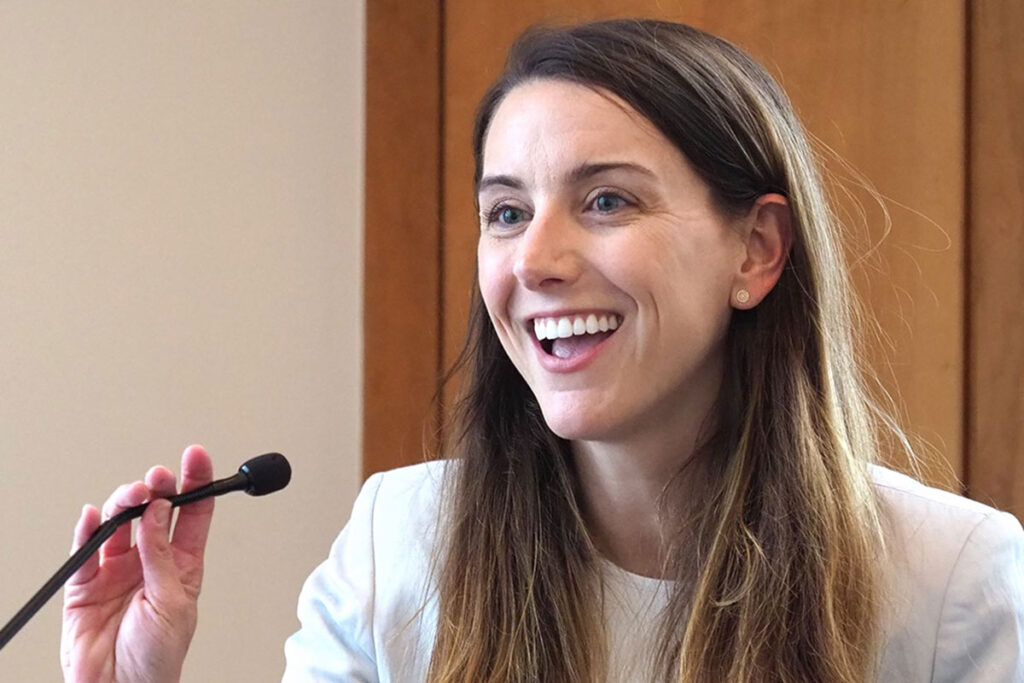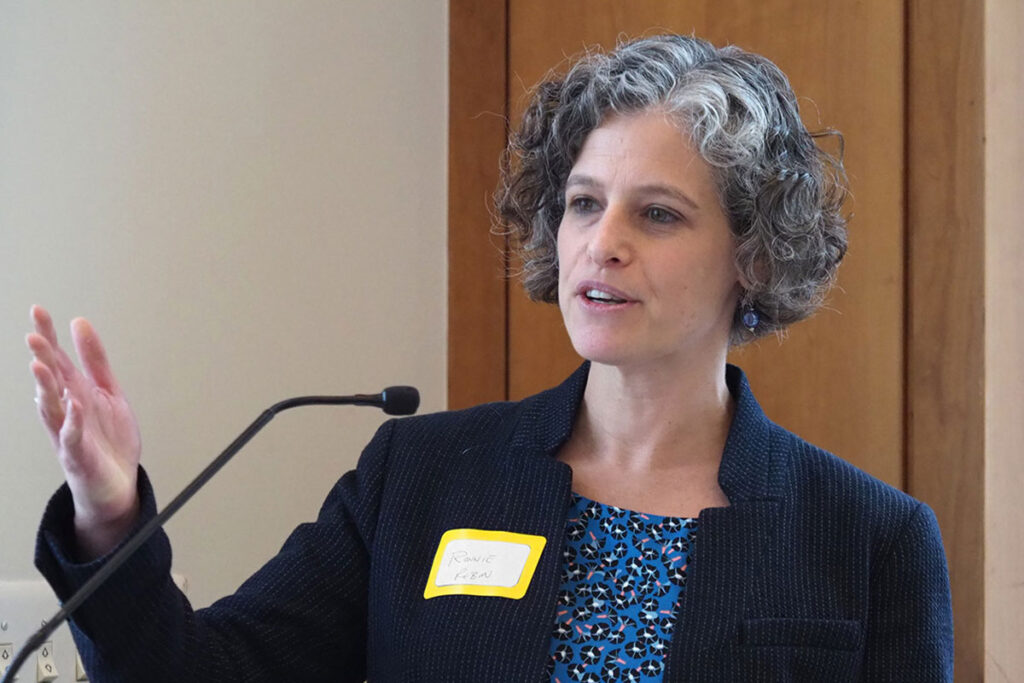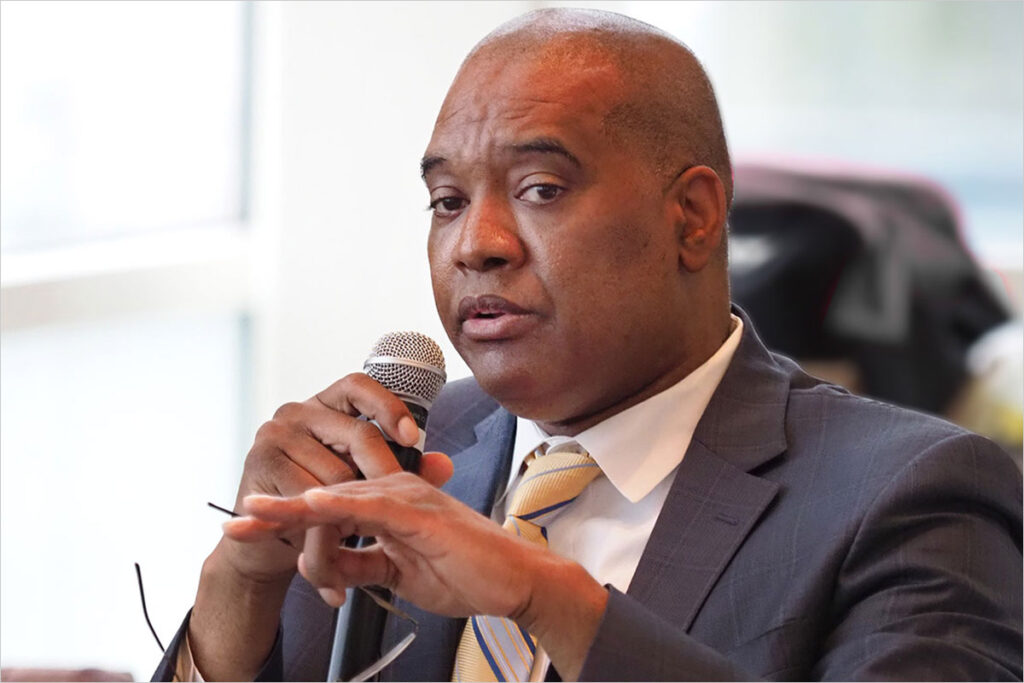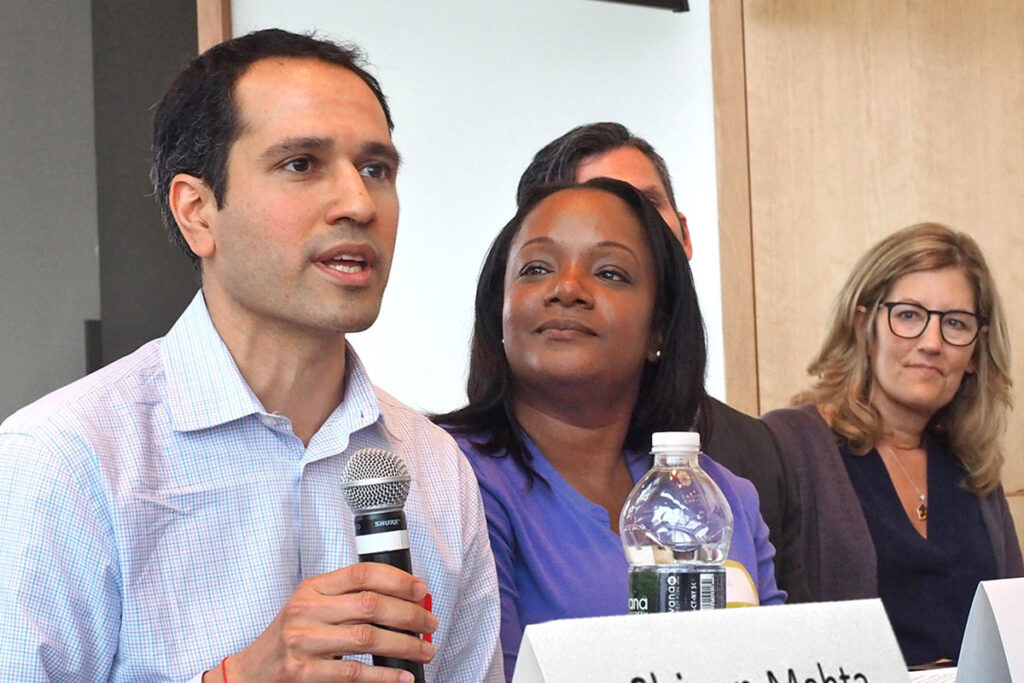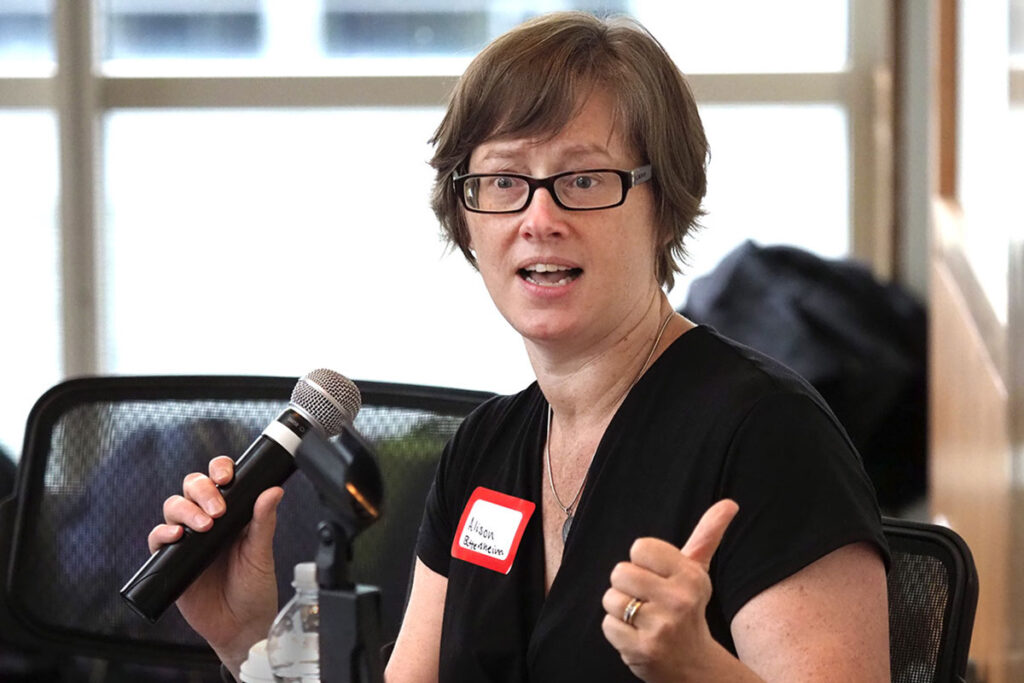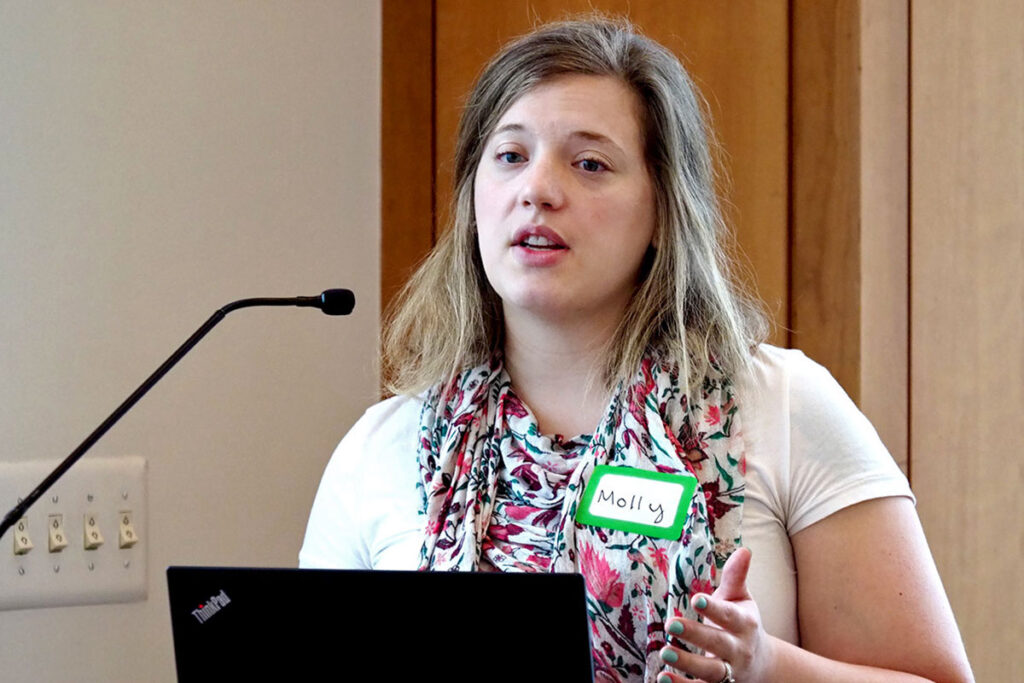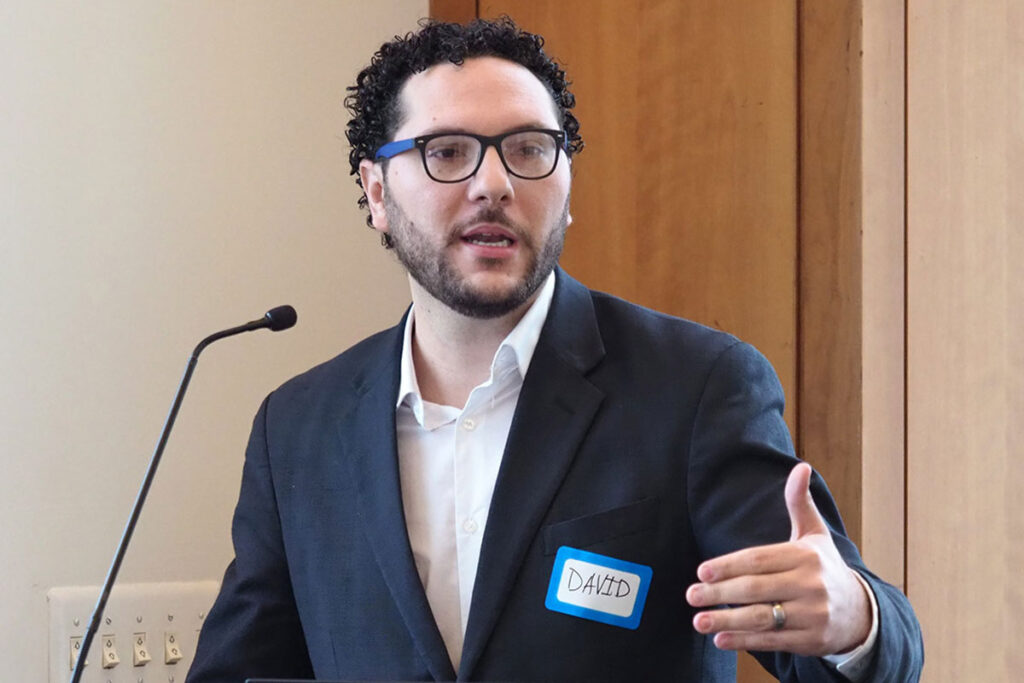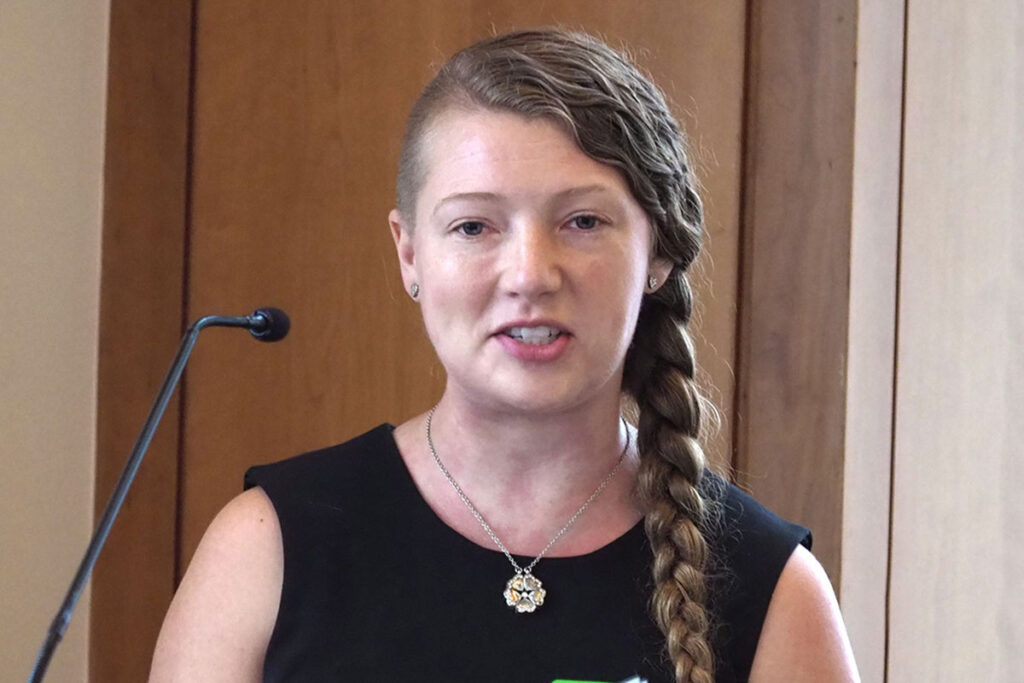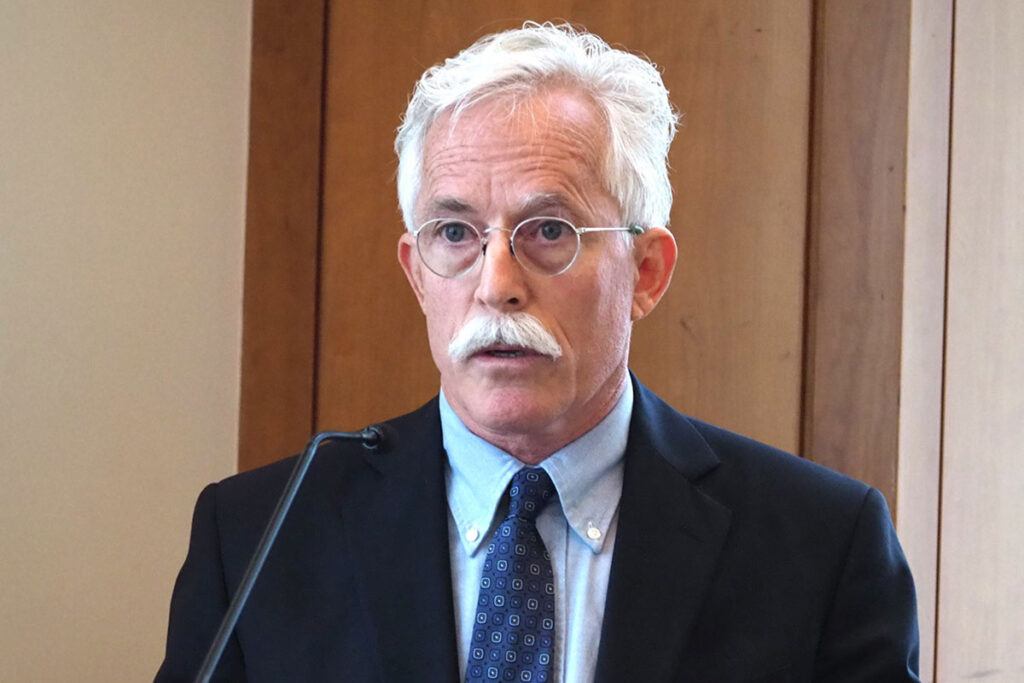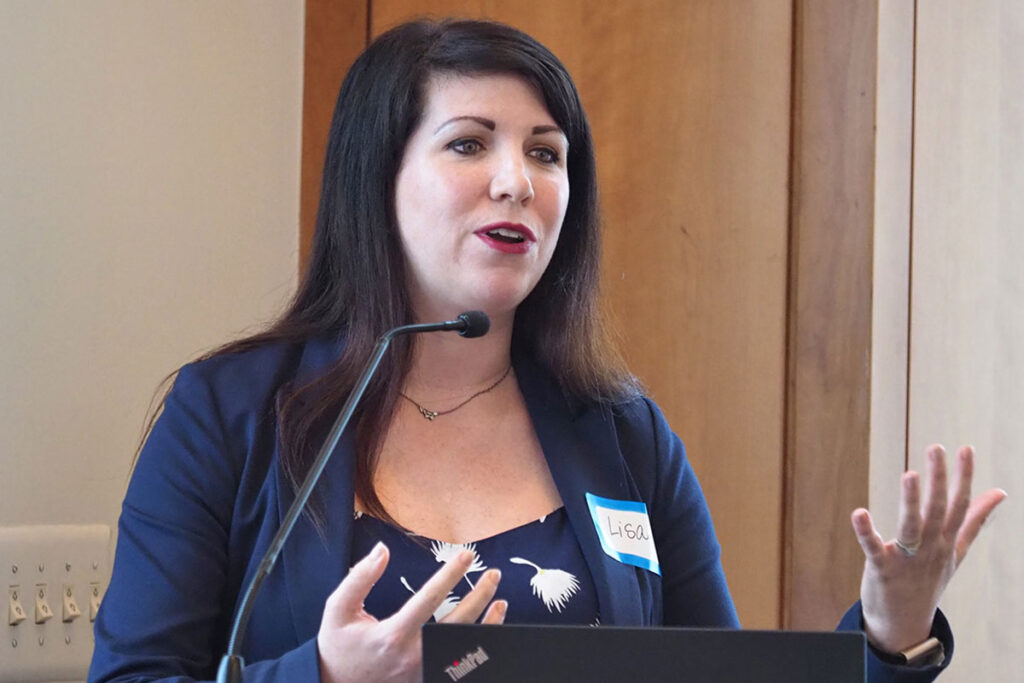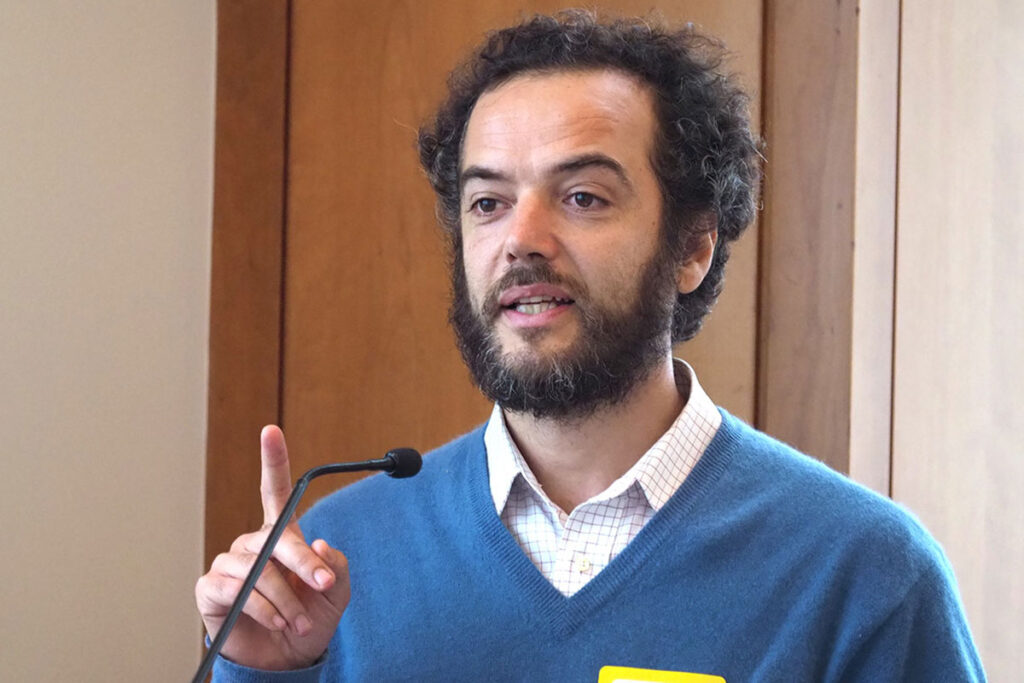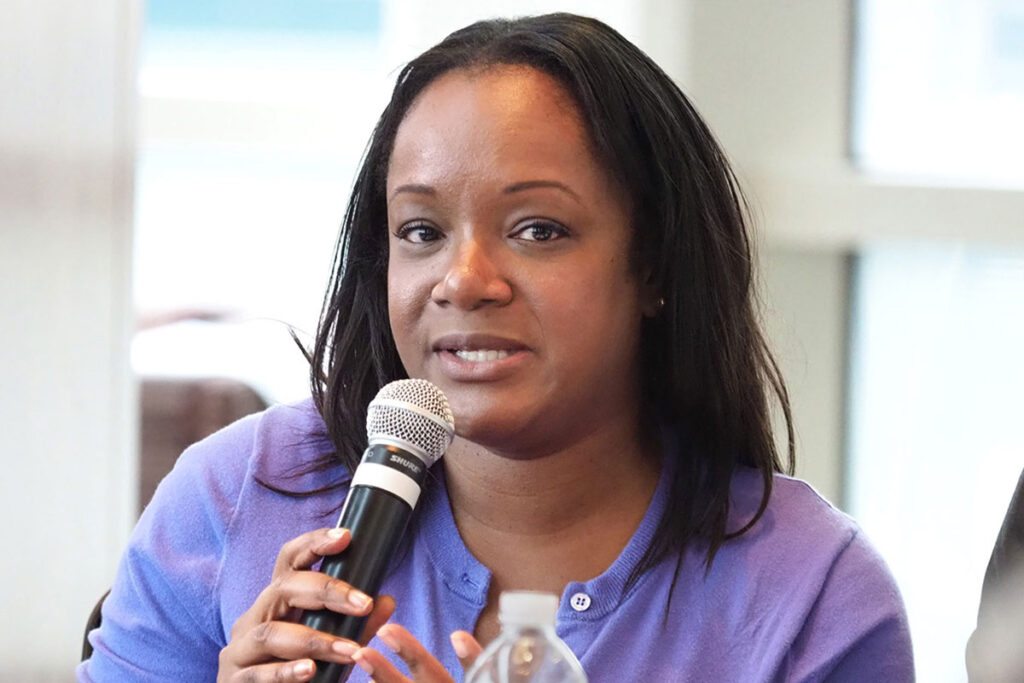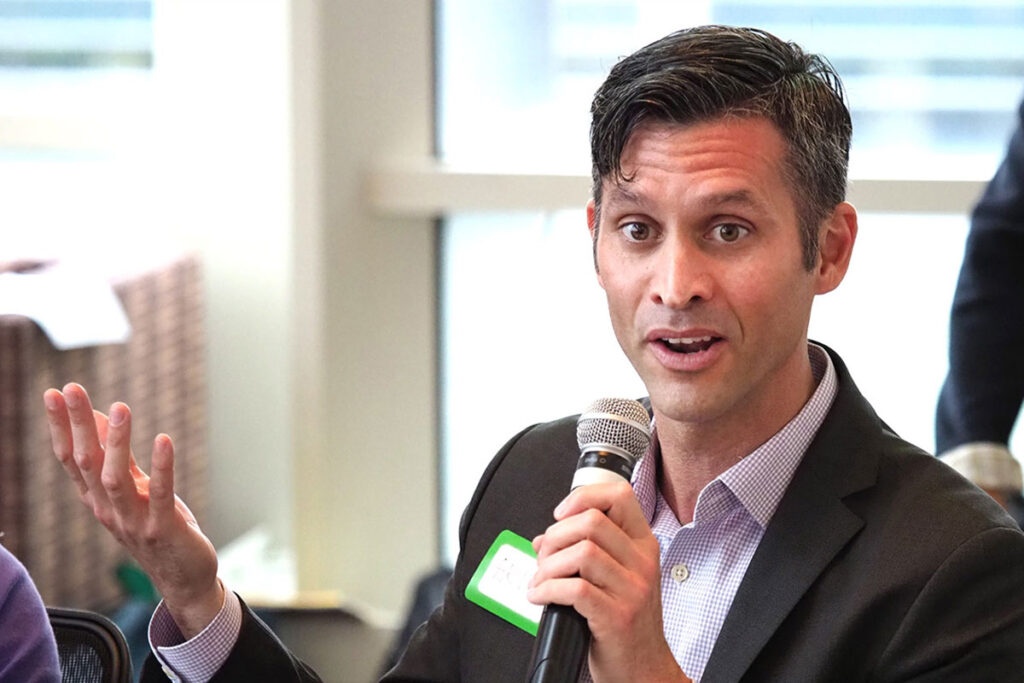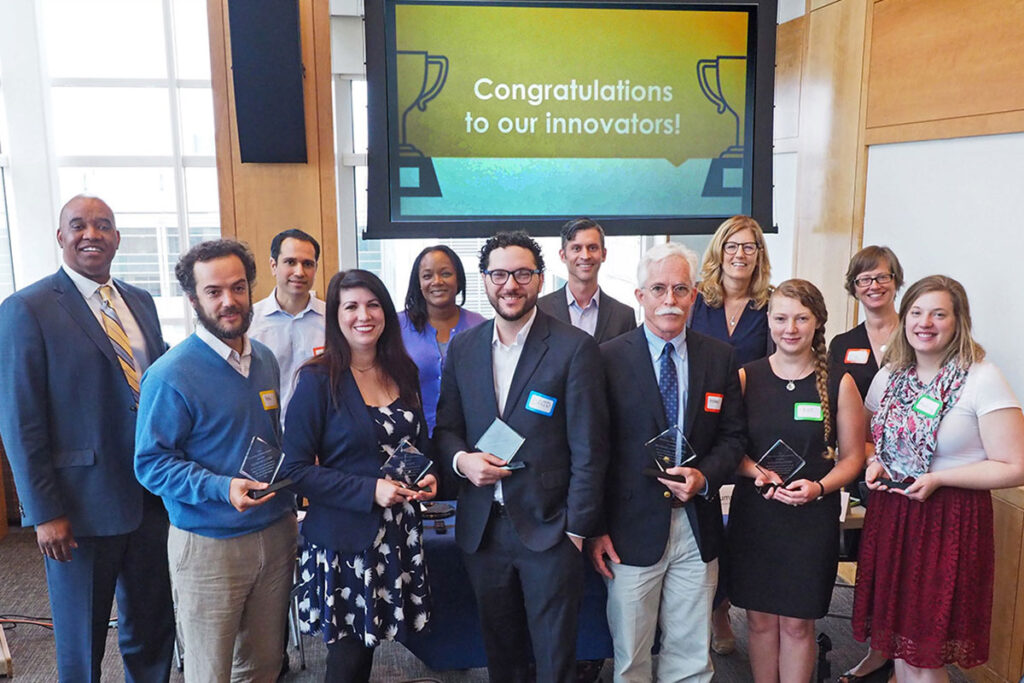Health Equity
News
Innovation Tournament Targets Mental Health Clinicians Across Philadelphia
Penn Event Announces Winning Ideas for Increasing the Use of Evidence-Based Treatments
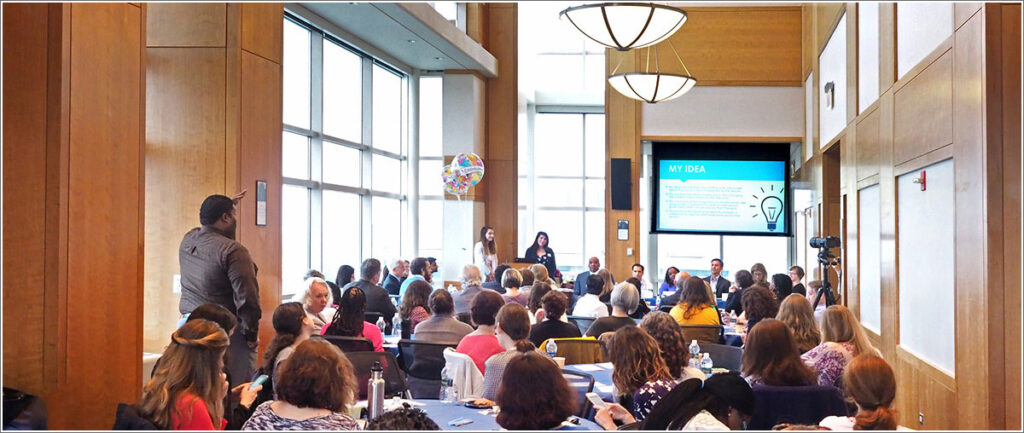
Part of a larger four-year research project, the University of Pennsylvania Center for Mental Health Policy and Services Research (CMHPSR) held its IDEA Gala in Penn’s Biomedical Research Building (above). The event brought together health services researchers and mental health clinicians and administrators to discuss new ideas for facilitating wider use of evidence-based practices (EBP) throughout the region’s community mental health organizations.
Fifty-five Philadelphia clinicians from facilities that provide mental health services throughout the City’s most vulnerable communities were part of an unusual innovation tournament and award program (above) organized by Penn’s Center for Mental Health Policy and Services Research (CMHPSR).
Part of a four-year, NIMH-funded Penn ALACRITY study exploring how behavioral economics and implementation science can be combined to improve mental health care, the “IDEA Gala” tournament received 65 submissions from 55 clinicians about how to broaden and accelerate the use of evidence-based practices in the region’s community mental health organizations. Six winning ideas were selected by a six-member Challenge Committee headed by Philadelphia Commissioner of Behavioral Health and Intellectual disAbility Services (DBHIDS) David Jones, MS. ALACRITY is a collaboration between CMHPSR and Penn’s Center for Health Incentives and Behavioral Economics (CHIBE).
Previous CMHPSR surveys found that many of the City’s public mental health system clinicians don’t feel rewarded or recognized for their use of evidence-based practices that are more effective than many other approaches to psychotherapy. The four-year study is aimed at identifying ways to change that.
In the previous NIMH funded work, Rinad Beidas, PhD (above, left), surveyed more than 600 mental health clinicians and administrators. She is co-principal investigator of the ALACRITY Center Grant, Assistant Professor of Psychology in Psychiatry at the Perelman School of Medicine, Director of Implementation Research, and an LDI Senior Fellow. “What we’ve accomplished today is not your typical research study. It really represents the best of community partnered research that moves our shared efforts forward to situate Philadelphia as the public mental health system to watch and emulate,” she said.
“This innovation tournament had a simple goal,” said Rebecca Stewart, PhD (above, right), CMHPSR Research Associate and Project Director of the IDEA Gala. “We wanted to ask clinicians directly for ideas of how their organizations could help them use evidence-based practices.”
“I’m very happy to be celebrating this crowd-sourcing challenge about evidence-based practices and I want to congratulate our EBP champions on their efforts and ideas,” said Ronnie Rubin, PhD (above, left), Director of the Evidence-Based Practice and Innovation Center (EPIC) of the Philadelphia Department of Behavioral Health and Intellectual disAbility Services (DBHIDS).
DBHIDS Commissioner and Challenge Committee member David Jones (above, right), heads the agency that oversees and provides mental health services throughout the Philadelphia School District, child welfare system, judicial system and other Philadelphia communities.
While the innovation tournament concept has been used by health services researchers within the Penn health care community for several years, Challenge Committee member Shivan Mehta (above, left) pointed out the uniqueness of the IDEA Gala’s tournament. “It’s exciting because this is the first time we’ve seen an innovation tournament done across the entire city and lots of different health care-related agencies.” said Shivan, MD, MBA, MSHP. He is the Associate Chief Innovation Officer at the Penn Medicine Center for Health Care Innovation and an LDI Senior Fellow. Next to Mehta are fellow Committee members Kamilah Jackson, MD, MPH, Deputy Chief Medical Officer for Child and Adolescent Services at DBHIDS; and Cherie Brummans, MBA, CEO of the Alliance of Community Service Providers.
Another Committee member, Penn Nursing Associate Professor and LDI Senior Fellow Alison Buttenheim, PhD, MBA (above, right), noted that beyond the six idea award winners, the ALACRITY/IDEA Gala project continues to sift through the full set of submitted ideas for clues to behavioral issues that get in the way of a broader implementation of evidence-based practices. Buttenheim is the head of the ALACRITY project’s Methods Core.
IDEA Gala award winner Molly Stubbs, MS, LPC (above, left), an Outpatient Supervisor at Devereux Advanced Behavioral Health, suggested the creation of an “Experts in Your Back Pocket” training program. The program would involve an expert clinician giving a one-day training session on a specific evidence-based therapy followed by several consultation meetings to guide trainees in using the therapy with complex cases. She said that having easy access to more than one expert will help clinicians feel more confident in implementing therapeutic skills.
Awardee David Medina, MA (above, right), a Psychotherapist at Hispanic Community Counseling Services, proposed a “Community-based Mentoring Program for Evidence-based Practices” program. He said the initial round of training in evidence-based therapy is not sufficient to enable clinicians to fully practice on their own in the fast-paced environment of their day-to-day work. His suggestion is for a program that recruits experienced evidence-based practice mentors who would visit community clinics at regular intervals to provide feedback specific to the client population and foster community among therapists.
Awardee Katarina Kirby, MA (above, left), an Outpatient Therapist at the Juvenile Justice Center (JJC), proposed a “Workshops and Rewards” program. She explained that “currently the incentive structures that support evidence-based training and implementation are insufficient. The training and implementation feel like a burden and an additional responsibility to therapists,” She recommended incentives such as a bonus in a therapist’s paycheck for attending EBP workshops, and a point-based system of rewards for continuous EBP use.
The winning suggestion of Michael Wintering, MA, LPC (above, right), Outpatient Counselor at Horizon House, was for an “Electronic Evidence-Based Screening Instrument Inventory.” His idea is to use screening instruments (or diagnostic forms) and embed them in the electronic medical record. At each visit, clients will be asked to fill out the brief questionnaire. These questionnaires are already available, evidence-based, and clients are motivated to fill them out. He hopes this idea will accomplish three things: 1) orient clinicians to the specific problems that the client identify, 2) help clinicians determine what evidence-based therapy is appropriate for the client, and 3) allow clinicians and clients to monitor the effectiveness of the therapy.
Trained in evidence-based Trauma-Focused Cognitive Behavioral Therapy (TF-CBT), IDEA Gala awardee Lisa Gaub, LPC, NCC (above, left), is a Clinical Supervisor at Saint Gabriel’s Hall, a juvenile facility for 150 young men who have been adjudicated delinquent. Despite her training, she said, there has been little reinforcement of TF-CBT efforts and she personally feels like she’s “flying solo.” Her idea is to establish a monthly “lunch and learn” session that would bring regional trainers and evidence-based practice specialists to the agencies. This would make training more accessible and convenient. She sees this as the first step in building a regional network of EBP clinicians who could help keep each other better informed.
Waiting rooms at community mental health clinics can be tension-filled environments, explained awardee Pedro Molteni, MA (above, right), who was trained through the Beck Community Initiative, a Penn Medicine collaborative program. “My idea recognizes that chaos is already part of some of our patients’ lives and they bring that into the waiting room,” said Molteni, a therapist at Community Mental Health and Mental Retardation (COMHAR). The first part of his two-pronged idea is to change the content of waiting room TVs from the often-frantic standard network fare to calming and informative programs such as mindfulness exercises. The second part is to use a care coordinator or peer specialist to distribute and discuss the individual client’s pre-session “quick sheet” (such as the one used in the Beck Community Initiative) in the waiting room in a manner that helps the patient focus on the upcoming session.
Commenting on the winning ideas and the issues they raise were Challenge Committee members Kamilah Jackson of DBHIDS (above, left) and Arturo Zinny, LPC, MA (above, right), Project Manager at Philadelphia Alliance for Child Trauma Services.
